The Audit module. Check the progress of installment with a new tool from Salesbook

The word audit does not get good PR. It is associated with inspections, long-lasting analysis of results, and searching for mistakes. A lot of companies have decided to take this step as a last resort. It usually happens at a moment when there are some irregularities in a sales process or during the performance of the service. The Audit module from Salesbook allows companies to perceive an audit in a unique way. It is a chance to increase competitiveness and regularly check the quality.
How does the Audit module work?
Thanks to Salesbook, you do not have to be afraid of the word audit. Even if you have not performed it so far, the process will not be difficult for you. The Audit module is intuitive; therefore, you can schedule your check in details. All information will be visible in your client’s lead.
The Audit module has many advantages. First, you do not have to use extra tools to plan the entire process step by step. It is enough if you choose a client that is supposed to be audited, click the suitable lead, and then the option called the Audit.
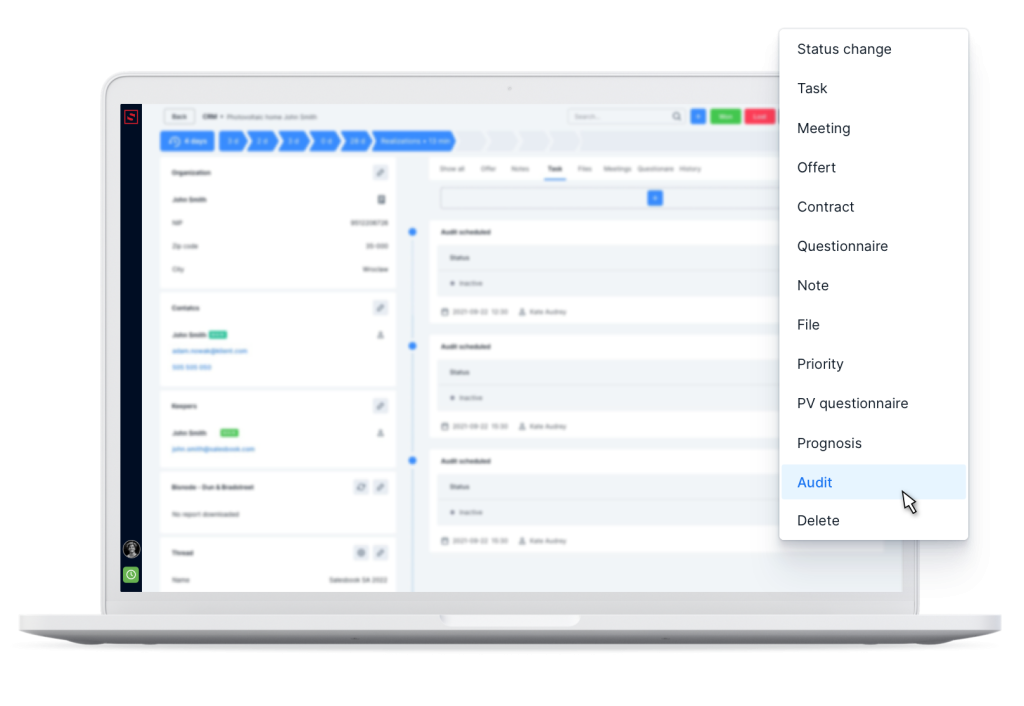
The next step is to schedule an inspection in detail. Firstly, you fill in such basic information as the contact person or the date of an audit.
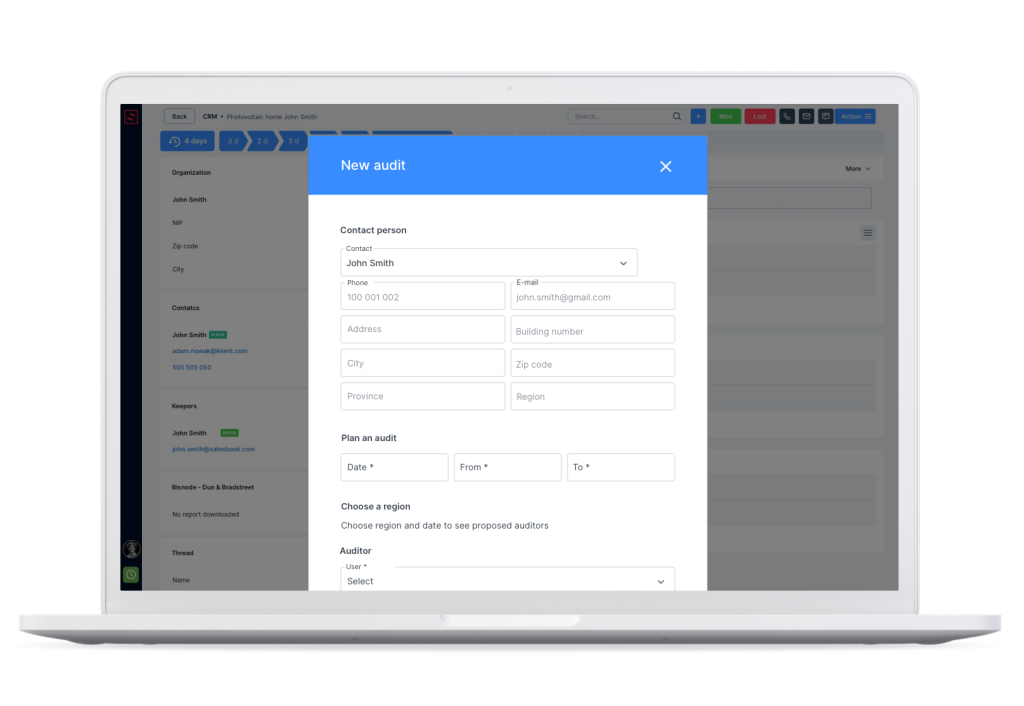
Before you choose an auditor, you can add such experts to a system and define their authorization.
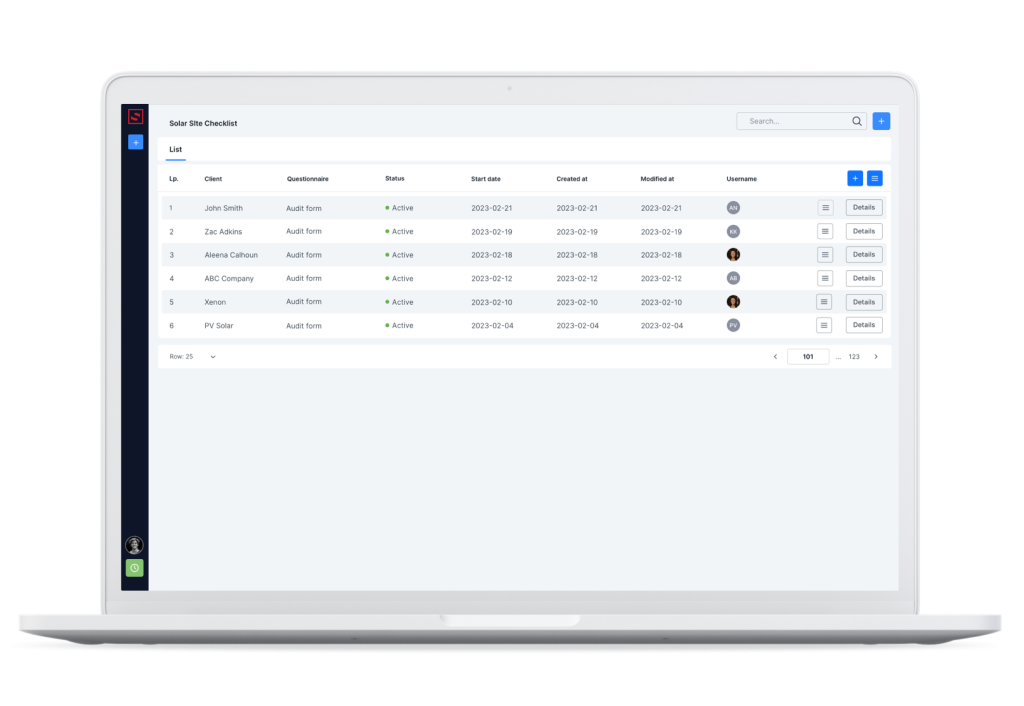
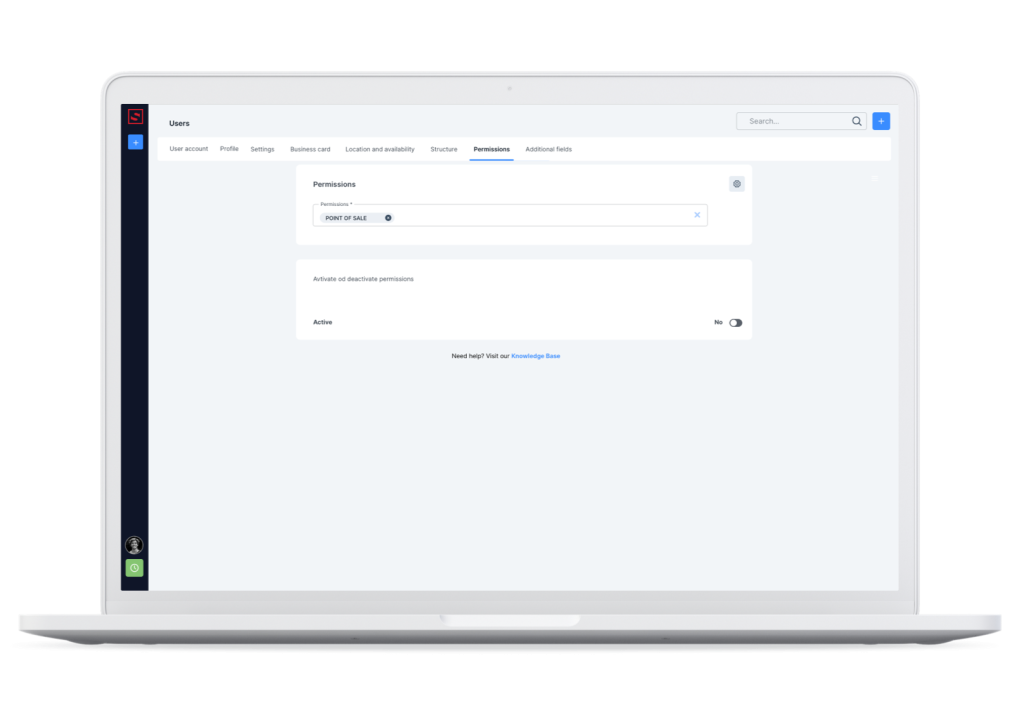
Simple process
If you define auditors, you can choose a given expert to perform an audit in a place chosen by you. You can check if a given auditor is available in a term and region preferable to you. Thanks to this option, you do not waste your time searching for data. All the information is already in the system. If you schedule an audit with Salesbook, you are certain that the terms of audits do not coincide. You are sure that you will not send an auditor to two places at the same time.
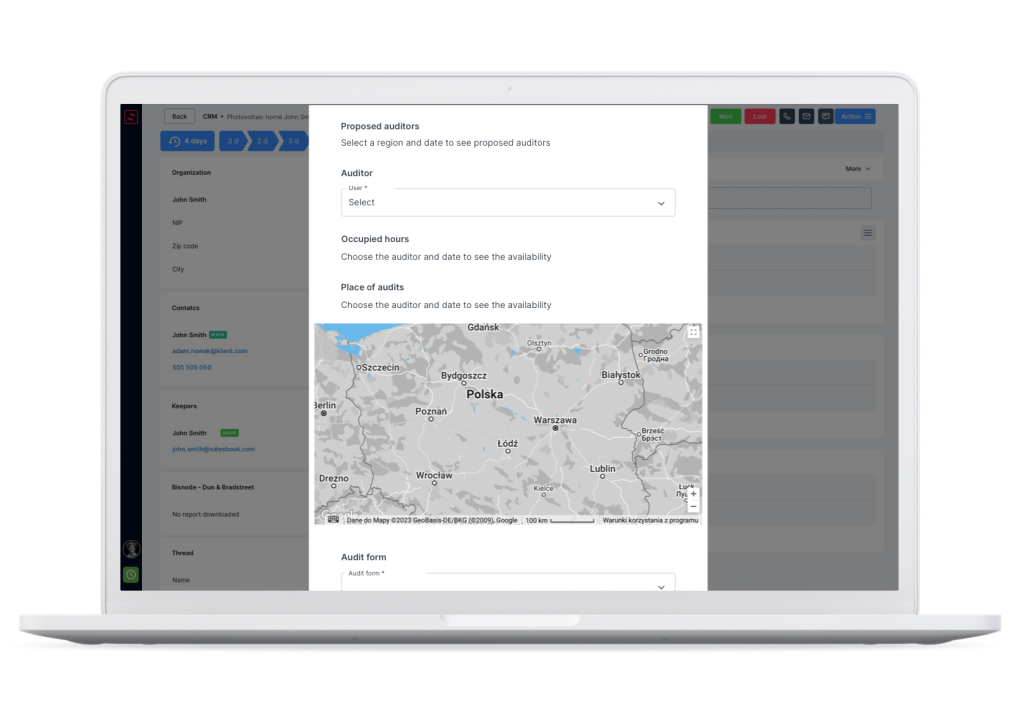
In the next step, you decide about the type of questionnaire that will be completed during an inspection.
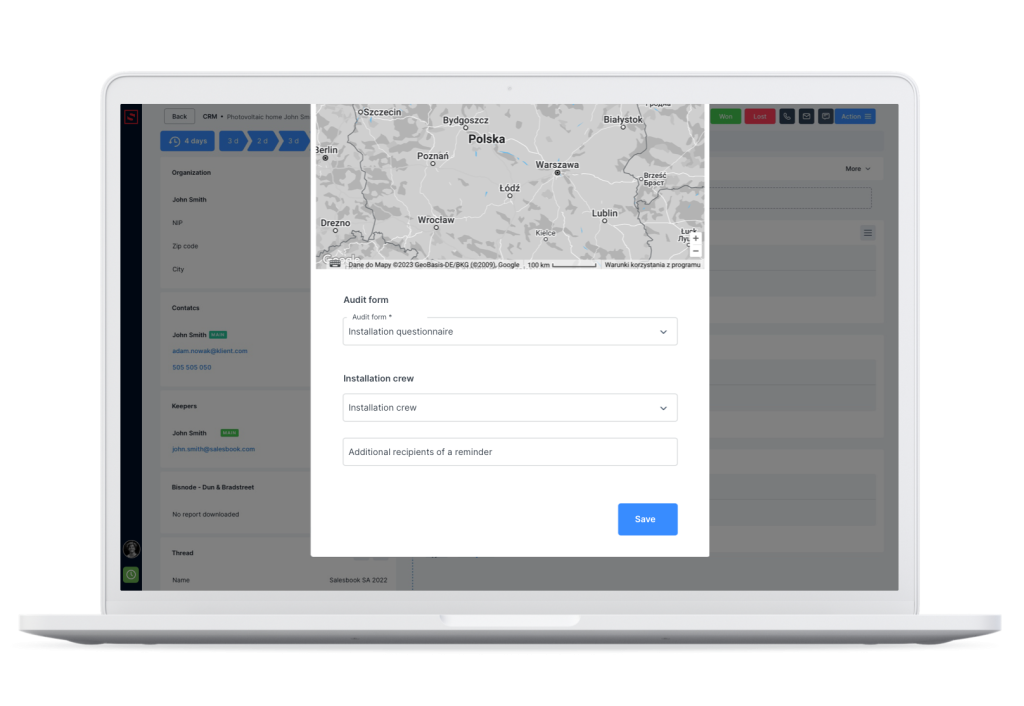
Let us assume that you have already scheduled your audit. Remember that you will find all scheduled audits inside the lead of the chosen client.
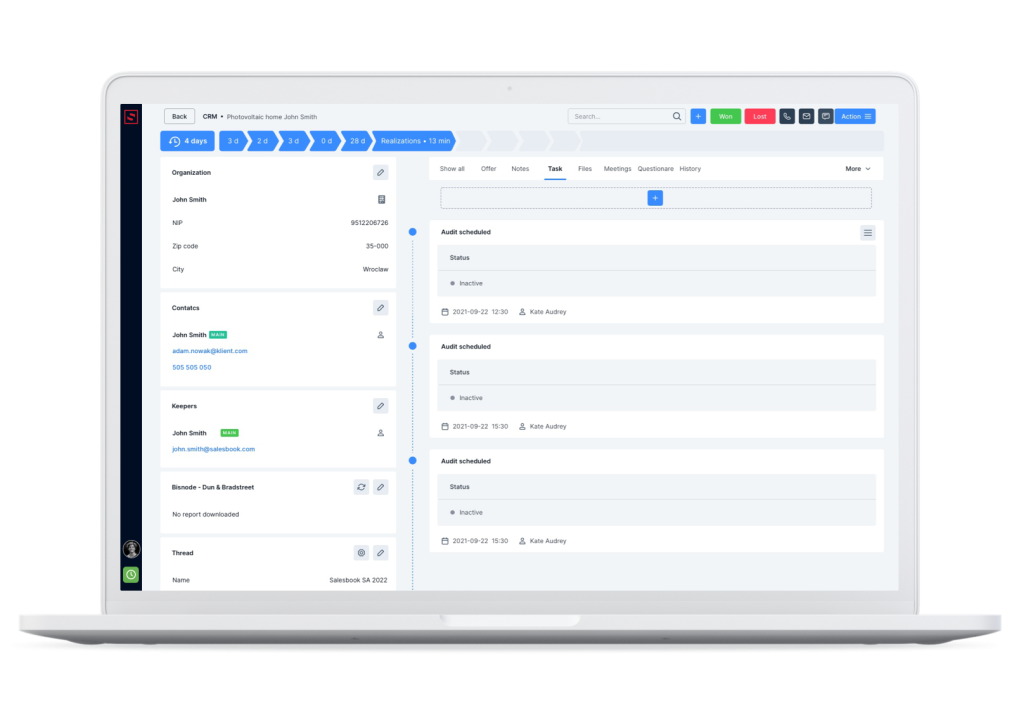
Calendar view
You can also see audits as scheduled meetings in your calendar. At this point, you can still check the details of an inspection, for example, its date and participants. It is very convenient that the information about audits is visible in your calendar. You have all your appointments in one place, and it is difficult to miss them.
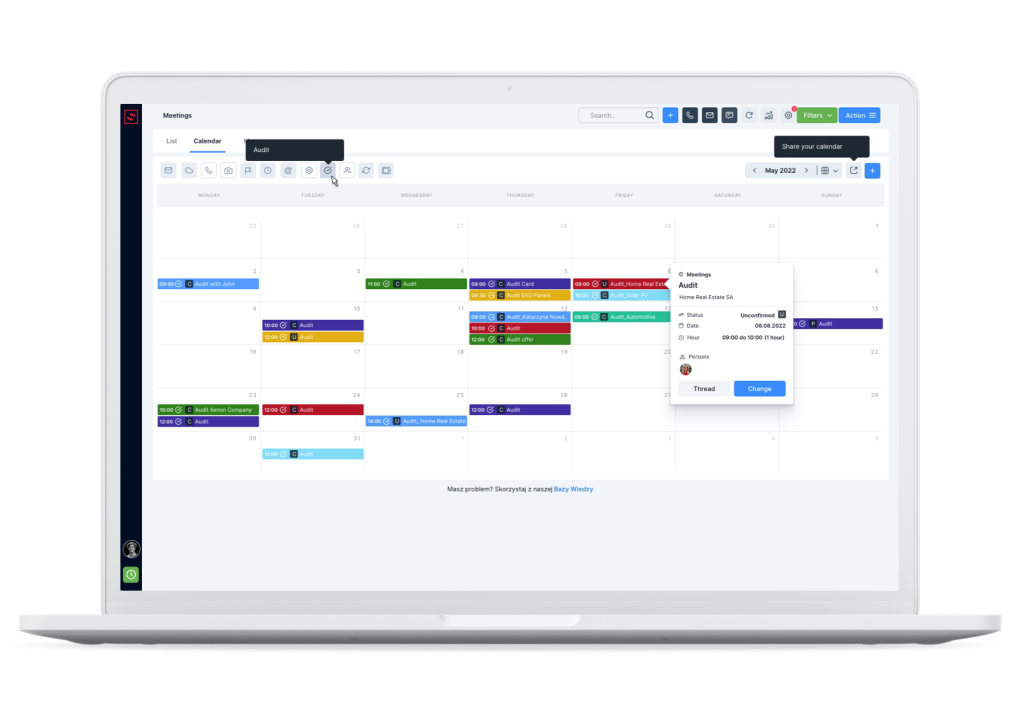
Audit form
However, the Audit module offers a lot more. All necessary information about the service, for example, about the installation, will be visible in an audit form. It is a document completed by an auditor. It has such information as:
1. client’s address,
2. installer’s data,
3. auditor’s data,
4. technical data of the installation,
5. type of protection mechanisms, wires, and other information that will undergo an audit.

At the end of the form an auditor can evaluate the quality of the installation.
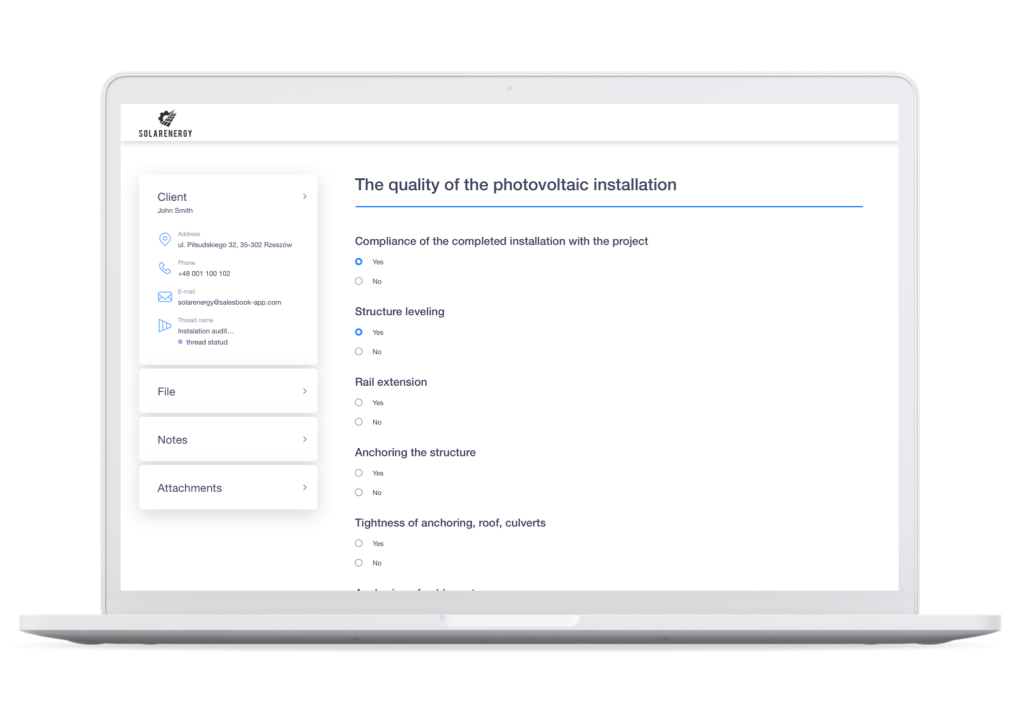
Moreover, during an inspection, an auditor can add drawings and photos to the file or make notes. As a result, an auditor creates a professional and complete form.
All information written during an audit will be present in the system. You will find the list of all audits performed there. What is more, you can place them in a separate tab. Thanks to this option, you do not have to seek necessary data in many places.
The Audit module allows you to perform one of the most difficult and long-lasting processes in a company. Using available options, you can have an audit tailored to your needs. As a result, you are certain an inspection meets standards of quality important to your company.
If you want to check the new Audit module, contact your Salesbook manager or send an e-mail: sales@salesbook.com. Check other functions of Salesbook.
Table of Contents







